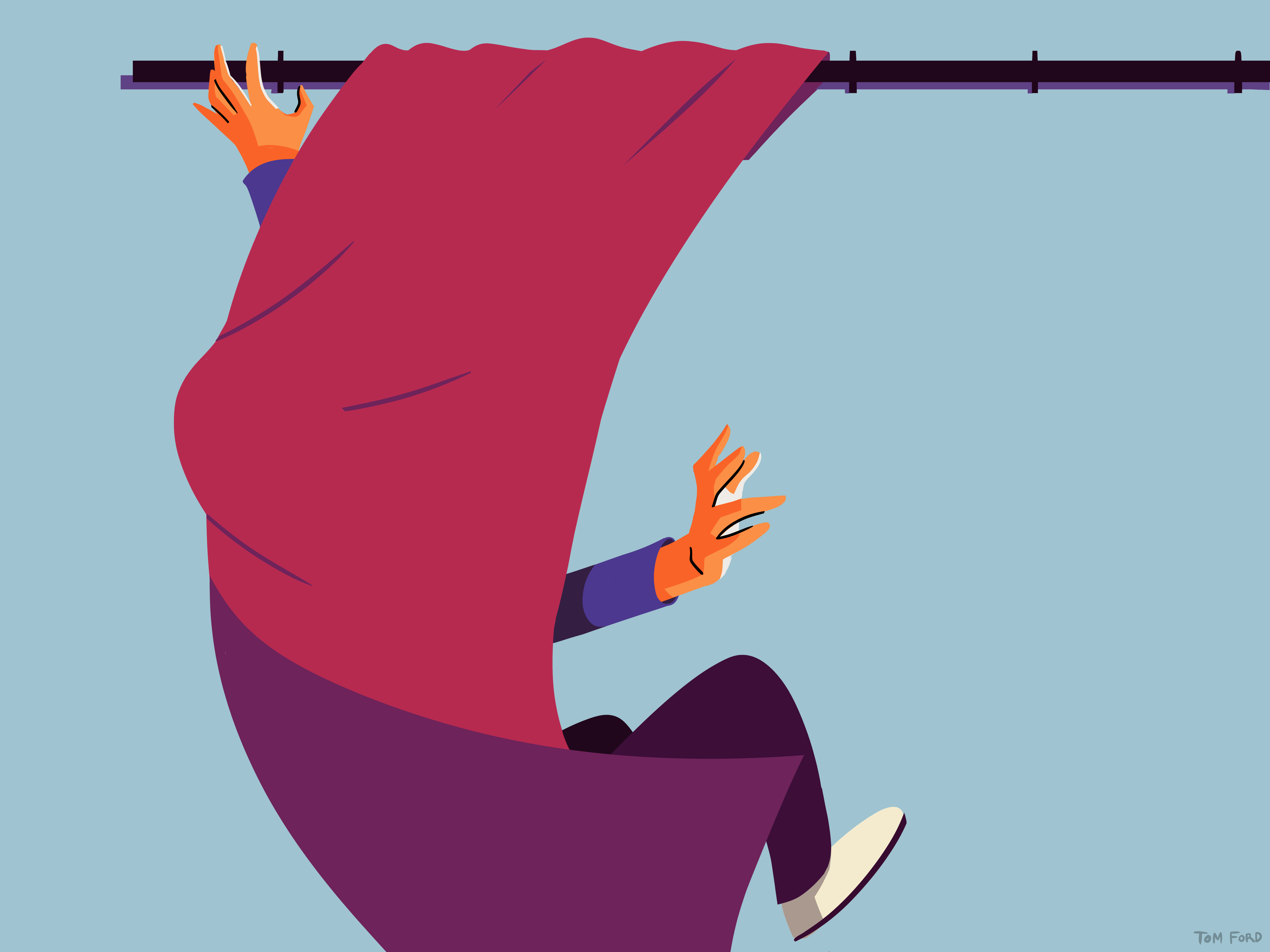I am well known among my friends for being a bit weird about curtains
Gaps in curtains bother me, perhaps too much for a normal person, but I maintain it is too important to ignore, writes Christine Manby


It’s not every day that you find out you have something in common with Prince Andrew. And lately, let’s face it, who would want to? But then I read the revelations of former Buckingham Palace servant, Charlotte Briggs, who told The Sun how she had been subjected to foul-mouthed outbursts by the Duke Of York for transgressions as minor as messing with his teddy bears, not properly aligning the crested pillows on his bed and leaving a tiny gap at the top of the curtains.
Hang on. What? She left a gap at the top of the curtains? Well, no wonder he made her change into her evening uniform, run up four flights of stairs and sort the bloody mess out. Even if he was sitting right there beside the crooked drapes at the time.
Of course I don’t approve of bullying (or of being a lazy arse, for that matter) but that gap in the curtains, it bothered me, just as it had obviously bothered the prince. Was that a flicker of empathy I felt for the man Briggs described as “demanding and entitled”? Briggs’ further assertion that the incident was “utterly ridiculous” left me feeling strangely judged. I am well known amongst my nearest and dearest for being a bit weird about curtains.
The curtains in my living room are the bane of my life. The left-hand one keeps dropping off the rings, and I can’t reach the pole without a ladder. I’ve had to let it droop for days until my partner comes round to hold the steps as I ascend. I don’t want to die for my curtains, but my neighbours might think I’m letting the place go to rack and ruin. Whenever I see that curtain hanging like a soggy towel, I hear the voices of long-dead relatives muttering “looks like a bleedin’ flophouse”. When a house slips into terminal decline, the curtains are always the first thing to go.
My sister and I were drilled in the importance curtain etiquette from an early age: they should be opened before breakfast and closed at dusk. They should never be shut during the day unless there has been a death in the family. In fact, that was how a death was signalled before you could set up a Facebook tribute page. Curtains were only down when being washed, a task that had to be achieved in the space of a day (unless you were the fancy type who had two sets for each window). People judge us by our curtains, our grandmothers and great-aunts said.
I learned my curtain lore in the 1970s and thought curtain-judging was a thing of the past, but a neighbour crossed the road to hammer on my window during the first lockdown, anxiously demanding why my curtains had been closed all weekend. Was I unwell? Actually, I’d just got the left hand one hanging properly again and didn’t want to pull it off its rings while lockdown rules prevented me from asking anyone in to hold the ladder.
My sympathy in the case of the gap in the Buckingham Palace drapes is entirely with poor, put-upon Briggs, who says she later took to hiding behind the curtains when she saw Prince Andrew approaching
Of course, curtains aren’t just about privacy and propriety. They’re about keeping out the light. I spent the price of a decent bicycle on curtains for my bedroom, paying extra for blackout linings. I live in a part of London where the street lighting seems especially bright and recently, all the lamps on my street have been fitted with bulbs that are easier to read by than my own lamps. Great when you’re walking home from the Tube station in the dark. Not so great when you want to go to sleep.
Those streetlights laugh at my blackout curtains, so now every evening begins with a long ritual of closing my curtains “just so”, making sure there are no gaps through which a finger of ugly orange light could creep in and disturb my dreams.
My evening routine may seem a little OTT, but light pollution is a growing problem. Artificial lighting interferes with our natural ability to see in the dark and there’s increasing evidence that it impacts our circadian rhythms, the sleep-wake cycles that set our internal biological clocks. When light enters the eye, it stimulates a part of the hypothalamus called the suprachiasmatic nucleus, which controls the release of melatonin. When it senses light, the suprachiasmatic nucleus turns down melatonin production, which leads to disrupted sleep, higher levels of stress and a lowering of immune system function. Disrupted sleep patterns might even be linked to an increased risk of certain cancers.
The suprachiasmatic nucleus can be triggered into lowering melatonin production and kicking off all those unwanted side effects by relatively low levels of light, so perhaps being pernickety about a gap in the curtains isn’t entirely without reason. That said, my sympathy in the case of the gap in the Buckingham Palace drapes is entirely with poor put-upon Briggs, who says she later took to hiding behind the curtains when she saw Prince Andrew approaching. The Duke Of York might have, you know, stood up and used the skills he gained as a highly-decorated helicopter pilot in the Royal Navy to pull the curtains closed himself.
Join our commenting forum
Join thought-provoking conversations, follow other Independent readers and see their replies
Comments


Bookmark popover
Removed from bookmarks